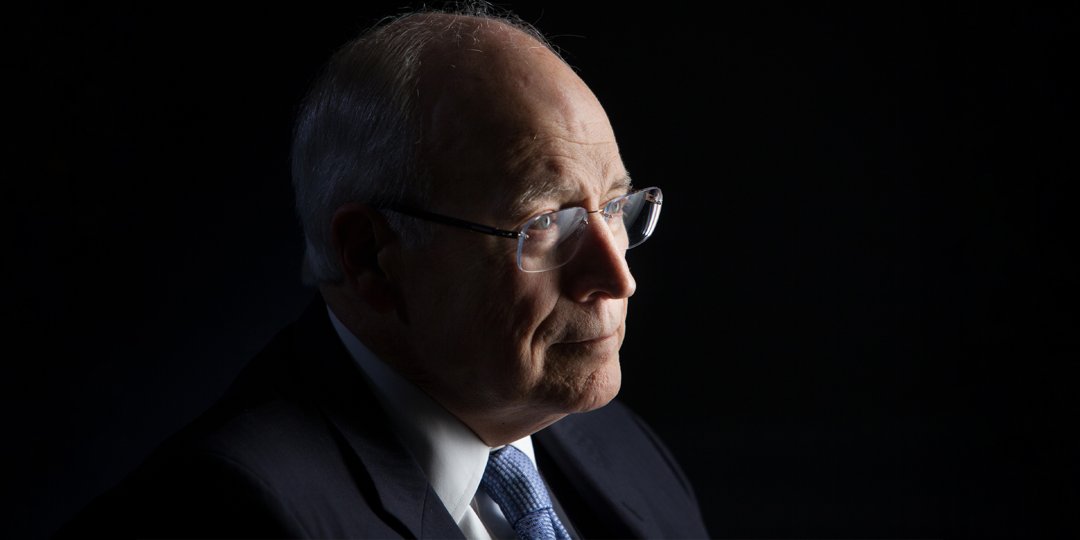
Dick Cheney’s Health Struggles: Five Heart Attacks and a Lifetime of Challenges
One of the most controversial figures in American politics faced a far more personal battle that spanned decades, nearly cost him his life multiple times, and ultimately shaped his legacy as much as his policies.
Throughout a long and high-stakes political career, former Vice President Richard B. "Dick" Cheney contended with chronic heart disease that led to five heart attacks and multiple major surgeries. His condition and the miraculous medical advancements that sustained him were deeply intertwined with pivotal moments in US history that thrust him into the global spotlight.
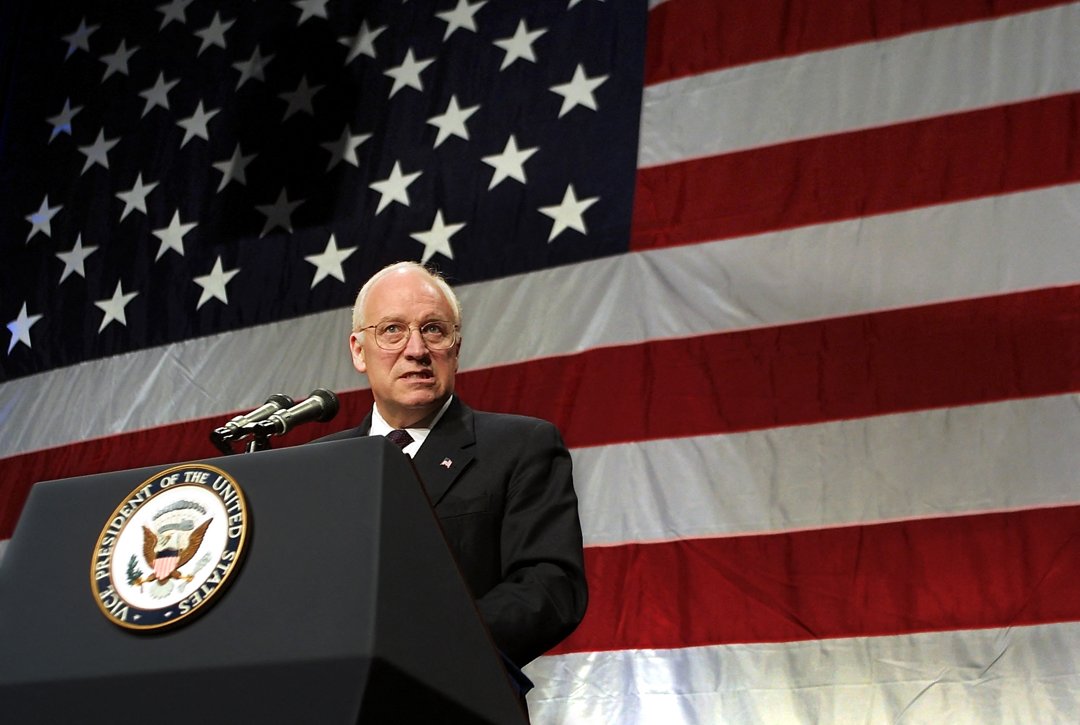
Vice President Dick Cheney addresses a Republican governors' fundraising event on October 25, 2001, in Washington, DC | Source: Getty Images
In 2013, Cheney spoke candidly with Sanjay Gupta for a "60 Minutes" episode titled “Dick Cheney’s Heart.” For the first time, it was revealed just how long he had been battling severe cardiovascular illness.
His full medical history was also detailed in his book "Heart," co-written with his longtime cardiologist Jonathan Reiner.
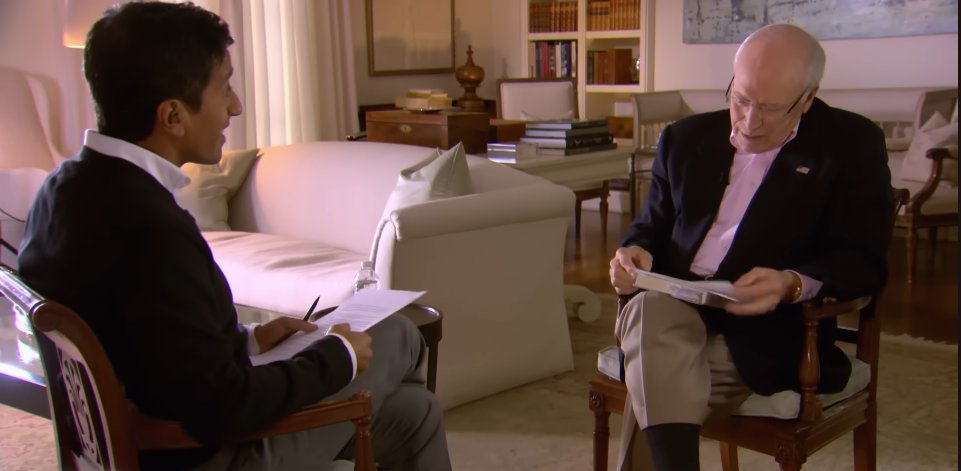
Dick Cheney speaking to Sanjay Gupta on "60 Minutes," from a video uploaded on November 4, 2025 | Source: Youtube/60 Minutes
Although Cheney came from a family with a known history of heart problems, he ignored every warning sign. He began smoking at the age of 12 and kept up the habit well into adulthood. By 34, while serving as chief of staff under President Gerald Ford, he was smoking three packs a day and indulging in a terrible diet.
The reason? At the time, cigarette companies donated boxes stamped with the presidential seal. In Washington's political circles, pulling one out and lighting up became a powerful status symbol.
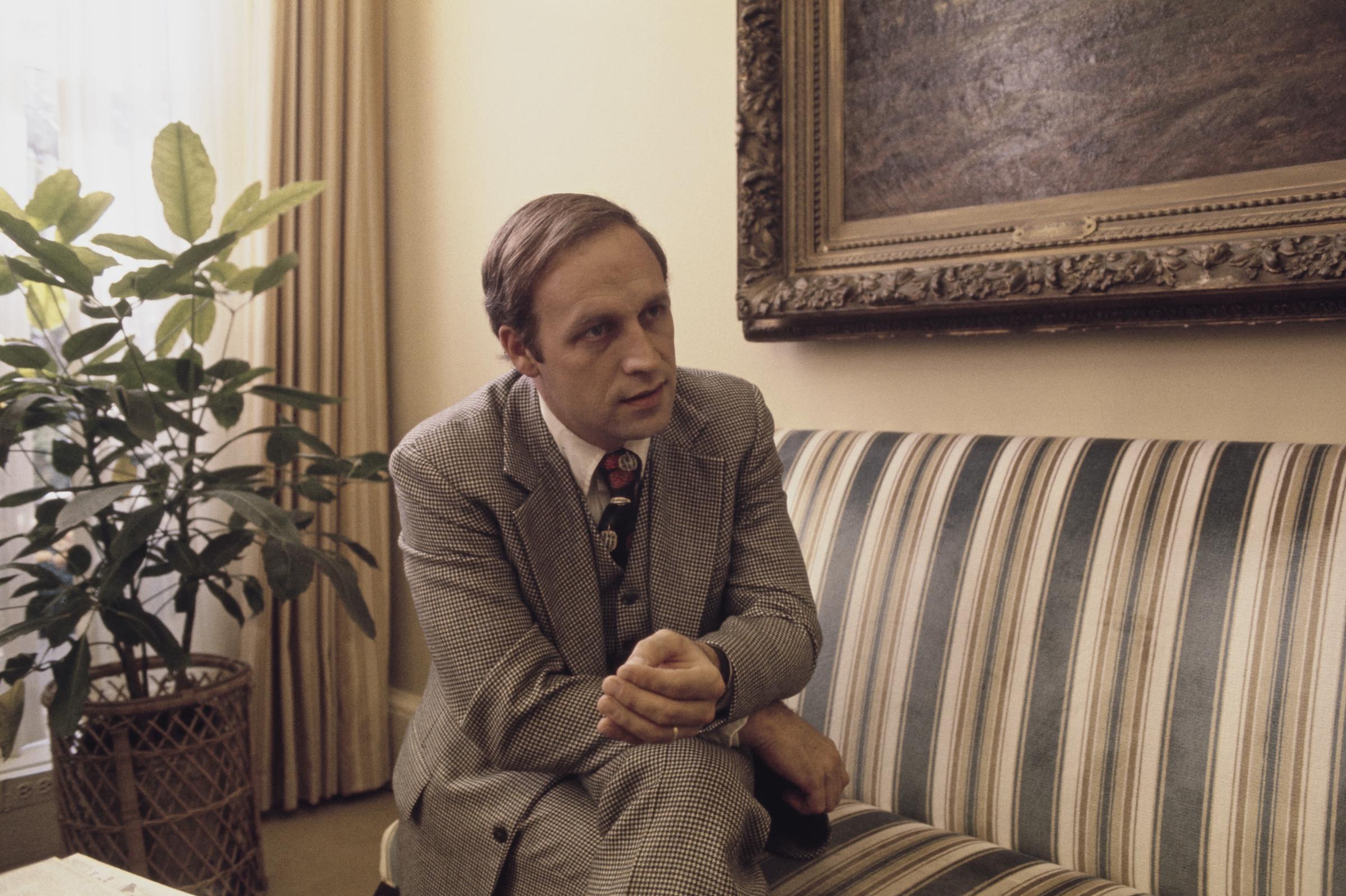
Dick Cheney is pictured in his office as newly-designated Chief of Staff at the White House, Washington, on November 5, 1975 | Source: Getty Images
But his lifestyle finally caught up with him at 37, just after he had left the White House and returned to Wyoming to run for Congress. His first heart attack happened then.
According to his medical records, doctors even told him to leave politics altogether, a warning he said he doesn't remember.
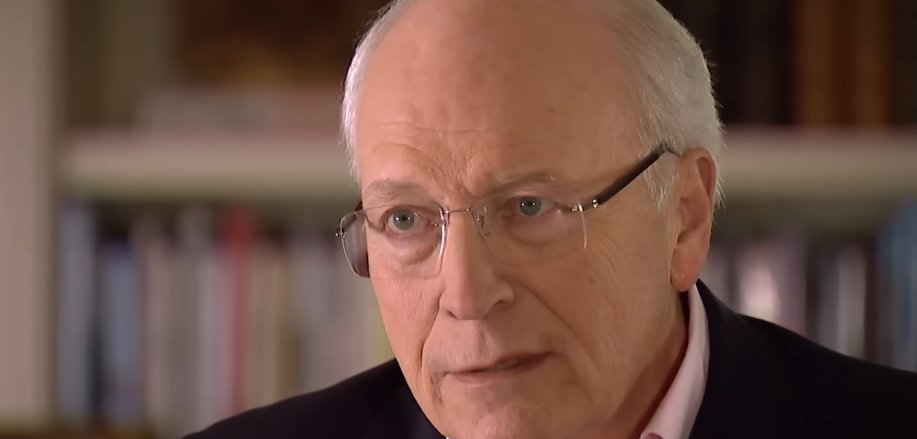
Dick Cheney on "60 Minutes," from a video uploaded on November 4, 2025 | Source: Youtube/60 Minutes
When Gupta suggested he might have simply heard what he wanted to hear, Cheney didn't deny it. But he offered, "They also emphasized that stress comes from doing something you don't want to be doing."
Cheney chose to stay in politics. He won his Congressional race and went on to be re-elected five more times. But his health troubles didn't stay behind.
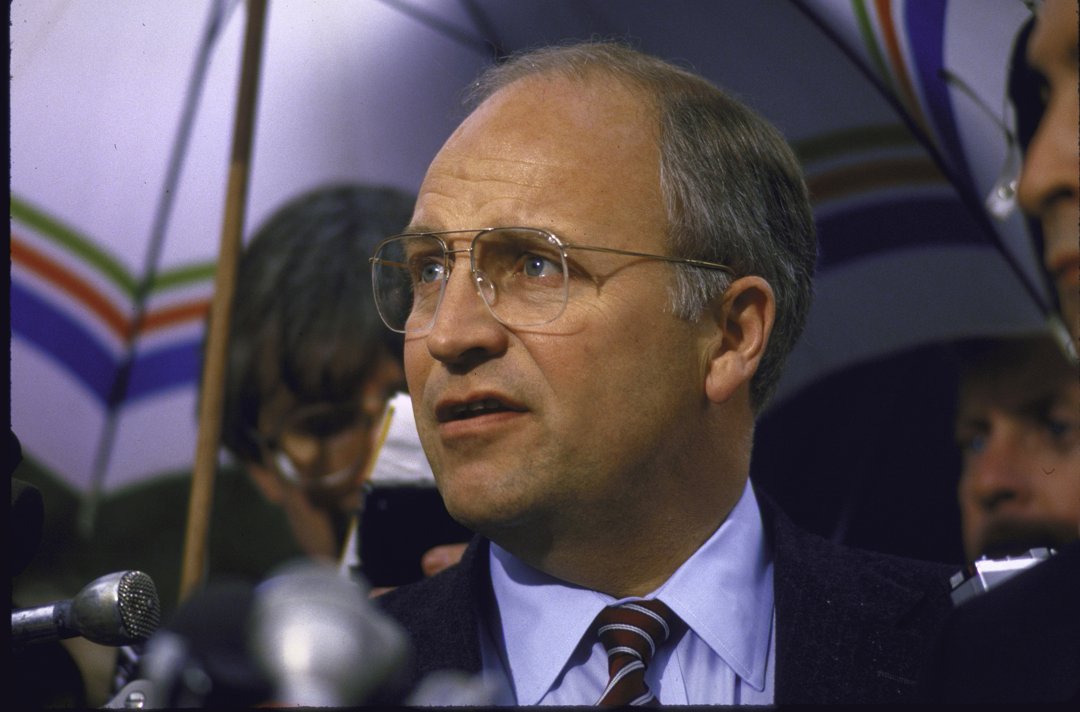
Dick Cheney talks to the press after a meeting at the White House regarding oil on April 1, 1986 | Source: Getty Images
In 1989, he became Secretary of Defense for President George H. W. Bush, but by that point, he had already suffered two additional heart attacks and undergone a quadruple bypass surgery.
The timing couldn't have been worse. He stepped into the role during a storm of international chaos: the fall of the Berlin Wall, the Tiananmen Square massacre, and then, the start of the first Gulf War. Many believed the stress of such overwhelming world events would only worsen his condition.
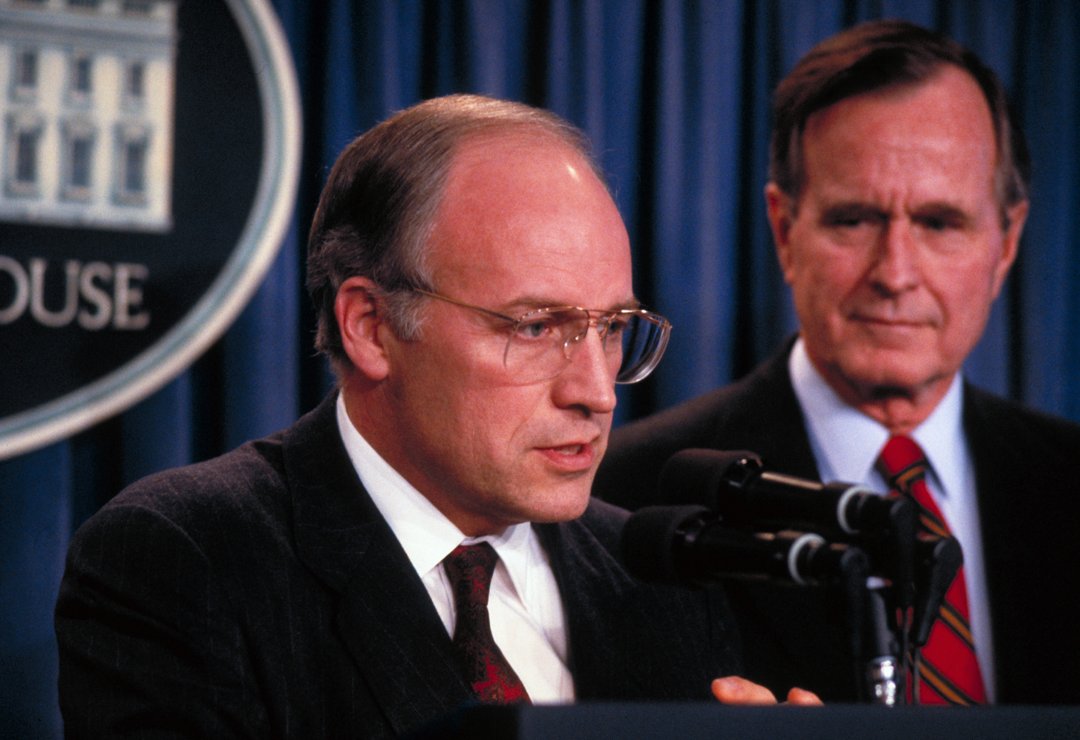
President George Bush looks on, as Defense Secretary-designate Dick Cheney speaks to the press on March 1, 1989 | Source: Getty Images
But Cheney disagreed. He told Gupta he had always been able to compartmentalize his job from his health.
In 2000, George W. Bush asked Cheney to be his running mate. But before moving forward, Bush's team wanted additional medical clearance. They brought in world-renowned Texas heart surgeon Dr. Denton Cooley, who consulted with Dr. Reiner and reported that Cheney's cardiac function was normal.
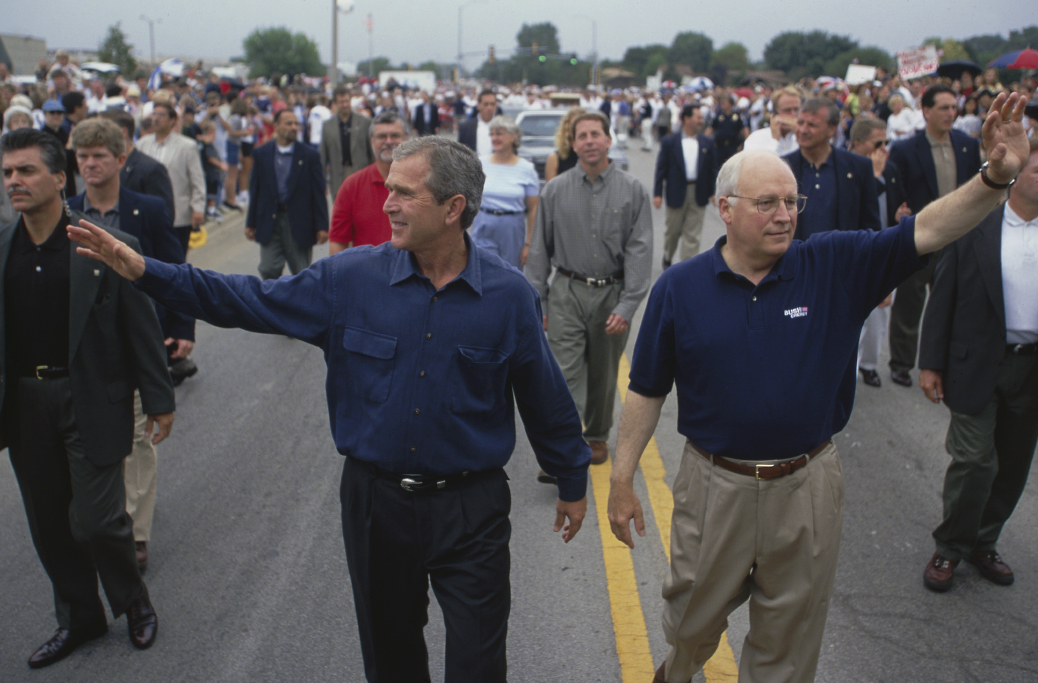
Presidential Candidate George W. Bush and his running mate Dick Cheney wave to supporters during a rally on September 1, 2000 | Source: Getty Images
That was not true at all, but Cheney told Gupta that he wasn't responsible for the doctor's reports. The fact was that he didn't ask to run for vice president at all. His party issued the nomination, and the doctors reached a decision. He didn't have any reason to override them, and ultimately, he was elected.
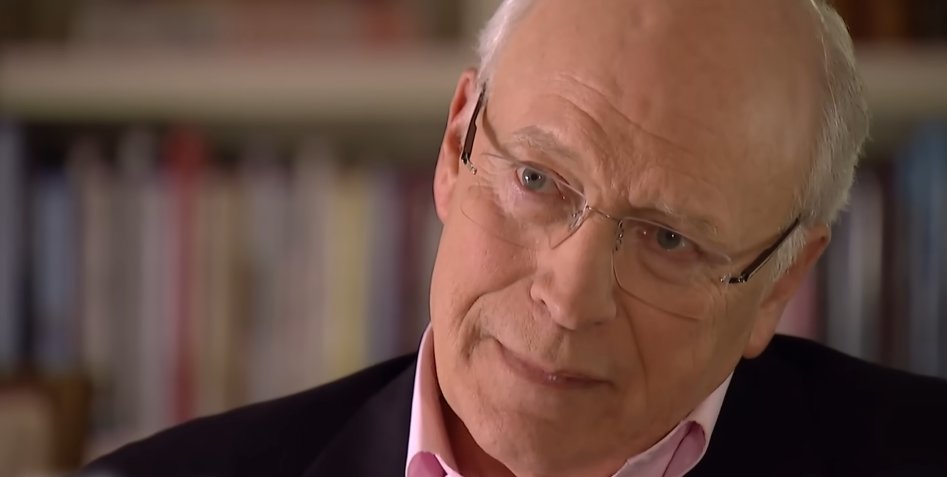
Dick Cheney on "60 Minutes," from a video uploaded on November 4, 2025 | Source: Youtube/60 Minutes
Just four months later, in the middle of the 2000 presidential recount, Cheney suffered his fourth heart attack. This time, he had to undergo a stent procedure to reopen one of his arteries.
Still, he pushed through. And the following year would bring the most harrowing test of all.
On September 11, 2001, Cheney faced what he considered his deepest challenge. While President Bush was in Florida, Cheney was taken to a secure bunker beneath the White House, where he made critical decisions, including considering the possibility of shooting down commercial planes.
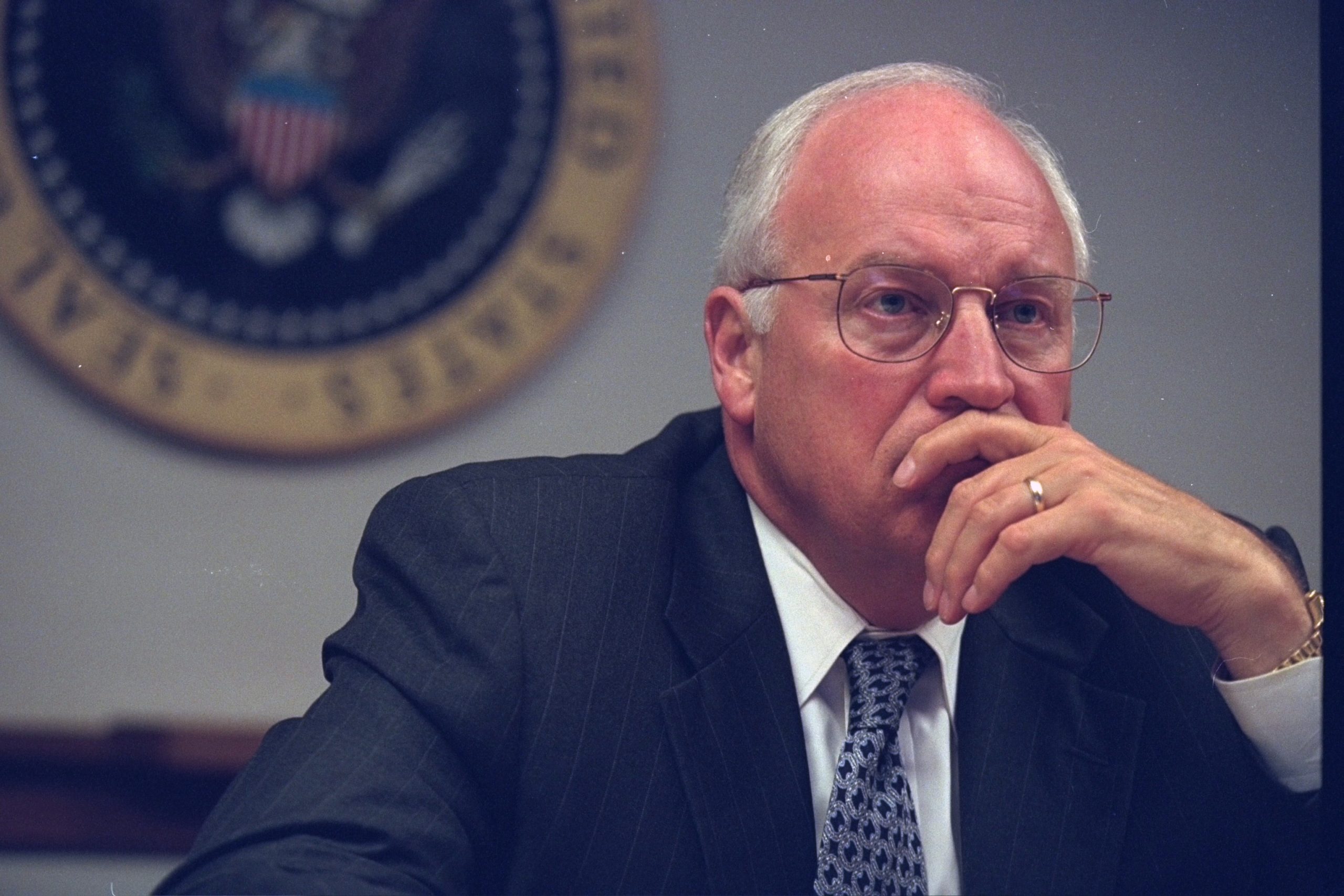
Vice President Dick Cheney meets with senior staff in the President's Emergency Operations Center (PEOC) after the terrorist attacks on September 11, 2001, in Washington, DC | Source: Getty Images
He told Gupta that in those terrifying hours, he never once thought about his health. All of his focus was on the unfolding national tragedy.
But behind the scenes, his medical condition was acting up. That morning, test results showed his potassium levels were alarmingly high, putting him at serious risk. Surprisingly, they returned to normal shortly after, but it was enough to set off alarms.
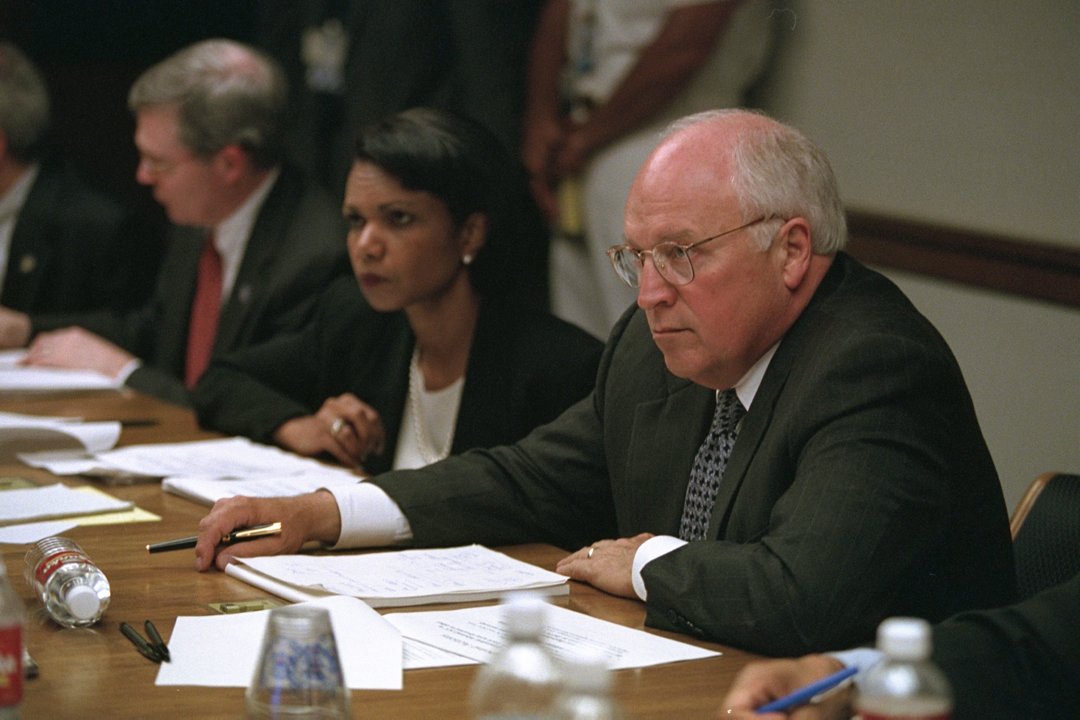
Vice President Dick Cheney and National Security Advisor Condoleezza Rice meet in the President's Emergency Operations Center (PEOC) after the terrorist attacks on September 11, 2001, in Washington, DC | Source: Getty Images
The long-term effects of that attack were profound. In 2007, during Bush's second term, Dr. Reiner had to replace Cheney's implanted defibrillator. He feared the device's wireless function could be hacked by a foreign enemy, potentially leading to Cheney's assassination via remote interference.
Therefore, Reiner asked the manufacturer to disable the feature entirely.
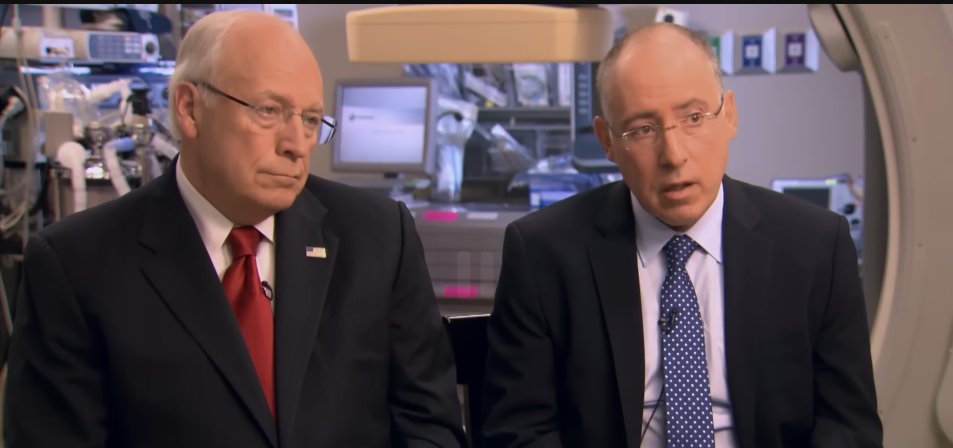
Dick Cheney and Dr. Jonathan Reiner on "60 Minutes," from a video uploaded on November 4, 2025 | Source: Youtube/60 Minutes
But Cheney's heart kept deteriorating. In February 2010, roughly a year after leaving office, he suffered his fifth heart attack. Several months later, he was implanted with a left ventricular assist device (LVAD), a mechanical pump used to keep the heart functioning.
Though patients with such devices typically live five to seven years, Cheney would go on to receive a full heart transplant in March 2012.
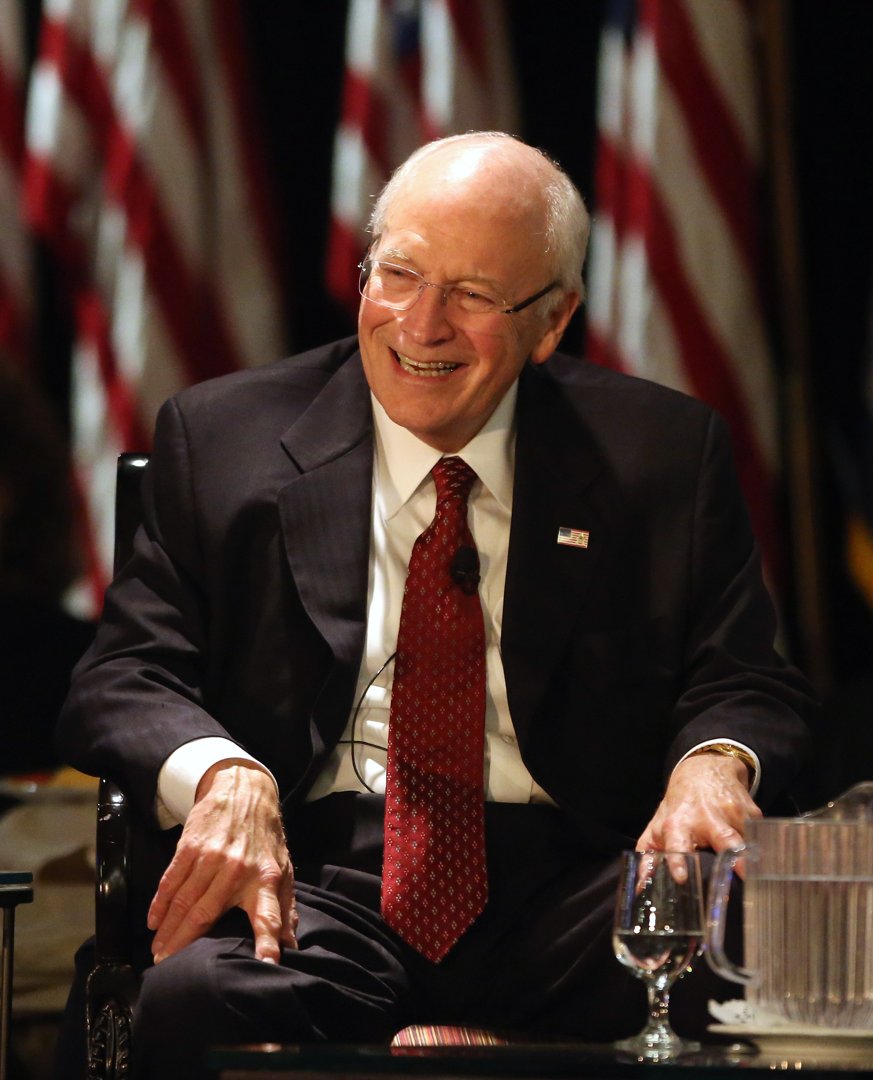
Former Vice President Dick Cheney speaks at the Long Island Association fall luncheon at the Crest Hollow Country Club on October 18, 2012, in Woodbury, New York | Source: Getty Images
During his interview with Gupta, Cheney reflected on this second chance at life. He said he was prioritizing his health, spending more time with family, and enjoying a quiet life back in Wyoming, while being thankful to have more days to live when all odds pointed against it.
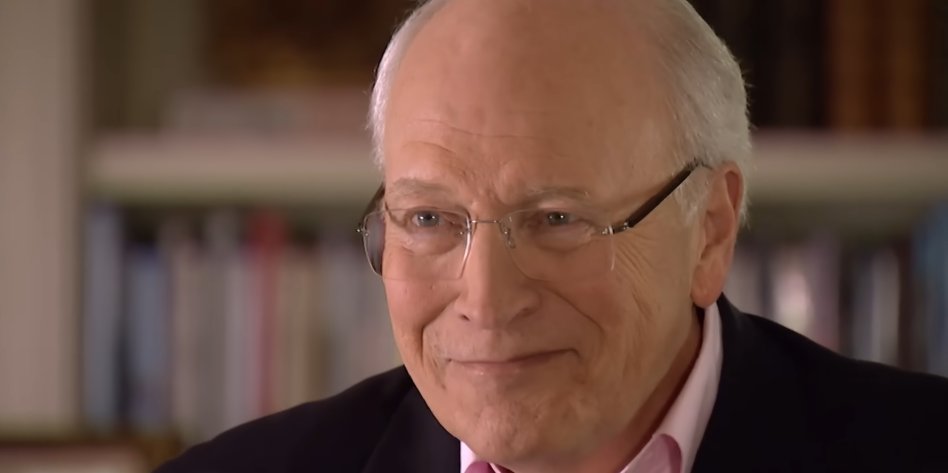
Dick Cheney on "60 Minutes," from a video uploaded on November 4, 2025 | Source: Youtube/60 Minutes
Thanks to the transplant, Cheney lived another 13 years, which is right in line with what Dr. Baljash Cheema described as the average survival period after such a surgery. However, had Cheney received the transplant at a younger age, he might have lived even longer.
In the end, it wasn't just the heart that gave out. His death was caused by complications from pneumonia, along with the decades of damage left behind by his cardiac and vascular disease.
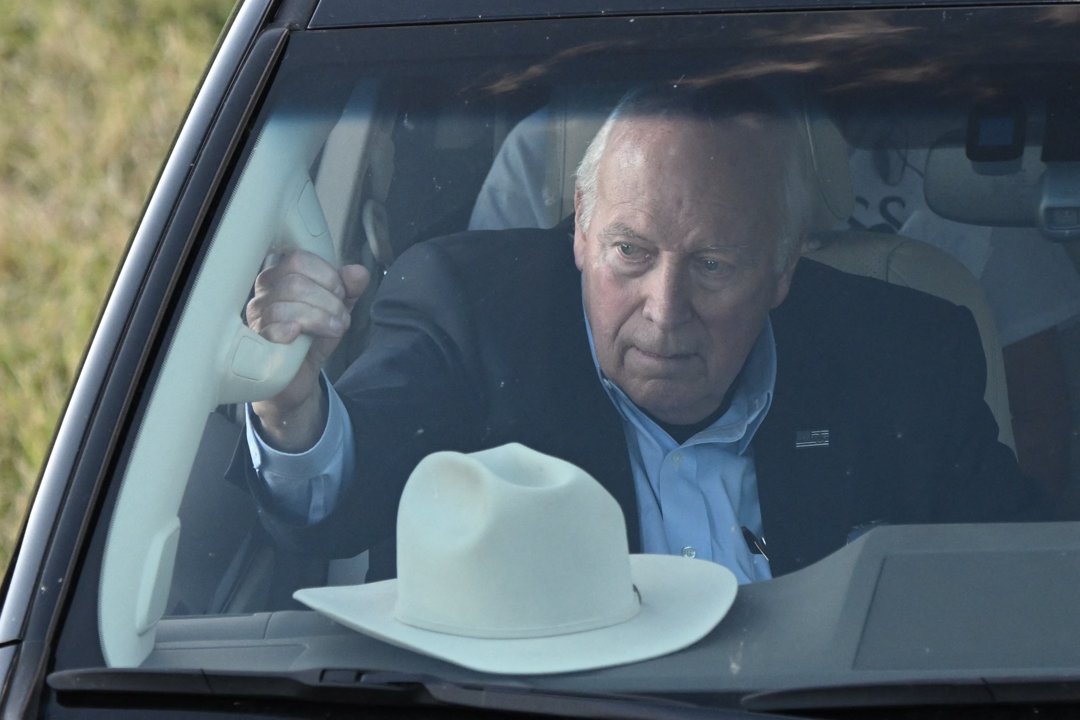
Former US Vice President Dick Cheney arrives to attend an election night event for his daughter US Representative Liz Cheney during the primary election at Mead Ranch on August 16, 2022, in Jackson, Wyoming | Source: Getty Images
Therefore, perhaps more than any policy or title, it was Dick Cheney's relentless fight for his life, against every medical odds and close calls, that may define his legacy just as sharply.
As previously reported, Cheney died at the age of 84. The family released a heartfelt statement the day after his passing.
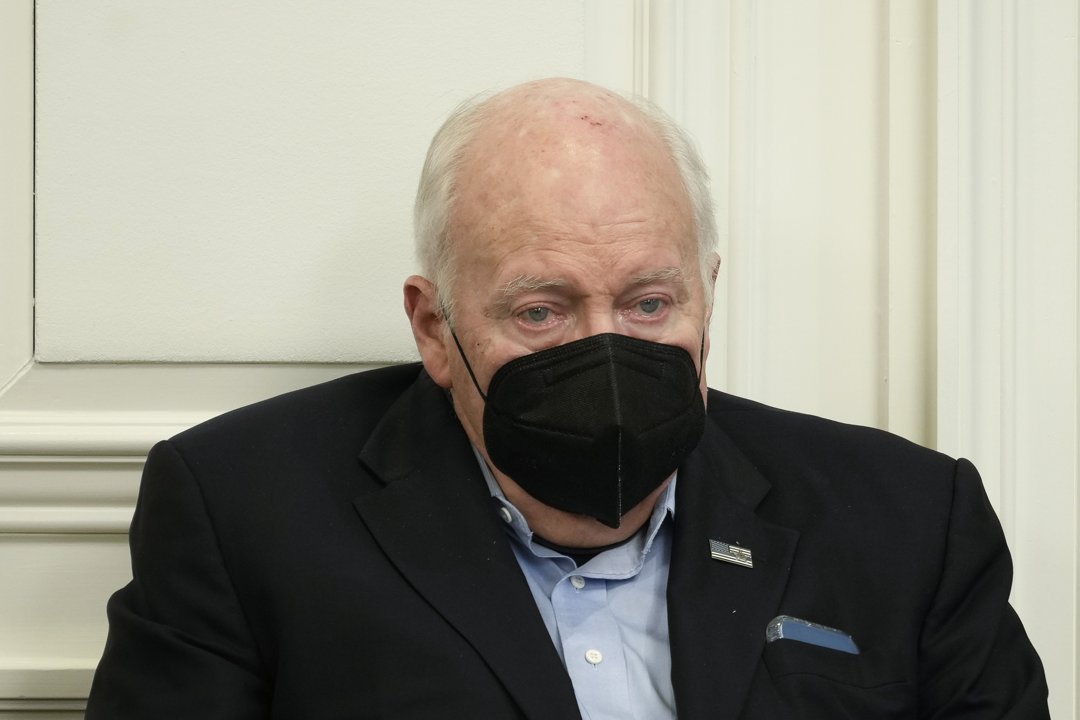
Former US Vice President Dick Cheney listens as during a Constitution Day lecture at American Enterprise Institute on September 19, 2022, in Washington, DC. | Source: Getty Images
They confirmed that the staunch conservative titan died on November 3, 2025. The statement from the Cheney family paints a tender picture of his final hours.
"His beloved wife of 61 years, Lynne, his daughters, Liz and Mary, and other family members were with him as he passed," it read.
